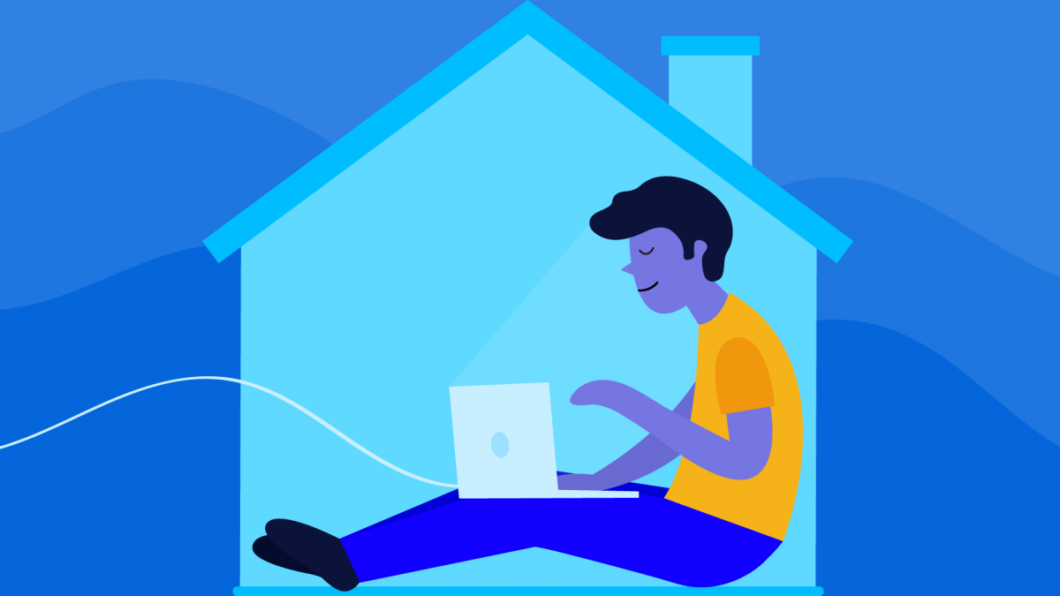An increasing number of people and organizations are bucking the trend by joining the ranks of remote workers. Gross disparity in housing costs, and a desire for better work-life balance has left millions opting for a work life that enables them to work from anywhere.
Businesses are also overcoming their initial skepticism and loosening the rules surrounding worker presence at the workplace. Who cares whether employees are working in their pajamas over a cup of coffee on the kitchen table? So long as the job gets done and delivered, right?
You can realistically expect the remote trend to continue growing in popularity—maybe even becoming a new normal.
It is because of this new or changing status quo that from this point on, some of the most pressing questions which companies will grapple with will involve motivating their remote workforces.
Working from home can be relaxing, and even exciting in some cases, but it also comes with less pressure, less oversight, and an increased risk of procrastination.
Here’s how you can avoid this as a remote worker:
Choose Where You Work Wisely
So you’re excited about working from anywhere as a remote worker. Great! That does not mean that you should, though. Choose where you work from wisely. If you want to make the best of your time away from the office, you probably shouldn’t work from the bedroom where you can fall asleep or anywhere that would leave you in discomfort.
Ideally, you want to create a particular space from which you can work every day. Not only does this help you with focus and memory, it helps your mind stave off distractions. If you are worried about distractions around the house, then choose to work in an area where the distractions are not available.
Play Make-Believe—Pretend you’re Going to Work
We all love the allure of working in our pajamas or in our undies. As a remote worker, when was the last time you woke up and prepped yourself as if you were going to work? Chances are it’s been a while. And this may have you struggling with deadlines because you find it hard to take your work as seriously as you would have if you had been in the office.
You don’t have to go full suit on when you get out of bed in the morning. But you could establish a well-defined schedule or time block to define your work hours and endow you with purpose and urgency. You could choose a routine that is similar to the one you would follow if you were at the office. That way you would have no problem hitting the ground running—especially as you wouldn’t have to deal with all the stuff and colleagues you don’t like at the office.
Keep Track of Your Time
On the internet, there are a million and one things to distract you and make you lose track of time. It usually starts with just that one comment on a friend’s Facebook post or that one YouTube video, and before you know it the whole day is gone and you no longer have time to do what you swore you would get done that day.
There are several smart devices and apps that can help you get around this. Time-tracking apps like RescueTime and Clockify, for example, can help identify projects or platforms that are taking a toll on your productivity. Whatever, solution you go with, make sure it is one that helps you track time rigorously—that’s the most important factor that affects productivity.
Acknowledge What Distracts You and Minimize Its Presence Around You
As much as we hate to admit it, what gives distractions their power to, well, distract, is the fact that we love them (most of the time). Kids, television, pets, radio, social media, YouTube, books, hobbies, and the like—all these are at your disposal when you decide to stay and work from home. And so we indulge ourselves, sometimes to the detriment of our productivity (who’s going to know you spent an extra hour playing with your dog instead of looking at and analyzing the spreadsheet?)
If your productivity must improve, then you have to tone down on those distractions you love so much. They waste your time and sap your productivity. Take less breaks, reward yourself for meeting small goals, use software to block off certain websites like social media, and so on. If the worse comes to the worst, you can always choose to work away from home like in a library or at a corner in quiet coffee shop.
Beware of Displaced Productivity
It’s easier to fall into this trap than many people realize. You know that situation where you are supposed to be doing one important thing but you replace it with another less important thing about which you start being productive? Well, that’s known as displaced priority.
For example, doing the laundry or cleaning the house during work house might come across as productive use of your time—it’s all a matter of perspective, you tell yourself.
But your professional responsibilities suffer because of it. And, be honest, you can always clean out the garage when you are done with work. Your daily schedule should prioritize urgent work over others.
Prepare Your Meals
Cooking can be a lot of fun, and can even get the creative juices going. But it can be time consuming and tiring. You simply cannot be the same person preparing three meals a day and still the same person with high productivity.
What you can do, to make sure you get all the food you need and still remain productive is to batch up your meals before the workweek kicks in. On Sunday, you could make a large amount of dinner food to take you through the week. You could make enough salad to carry you through the lunches. Not only does this save you time, it is healthier than going out for a plate.
Stay Motivated by Starting and Ending the Day with a Win
One of the major drawbacks of working remotely is that there is no boss or supervisor around to give you pat on the back when you do a good job, or give you a heads up when your productivity is slipping. Staying motivated can be a real problem.
To counter this, you want to start your day and end it on a high. Establish easy wins at the beginning and end of the day. These could be as little as answering a few emails at the start of the day and the end of the day. Studies show that even little wins give us a dopamine shot and makes us feel good.

